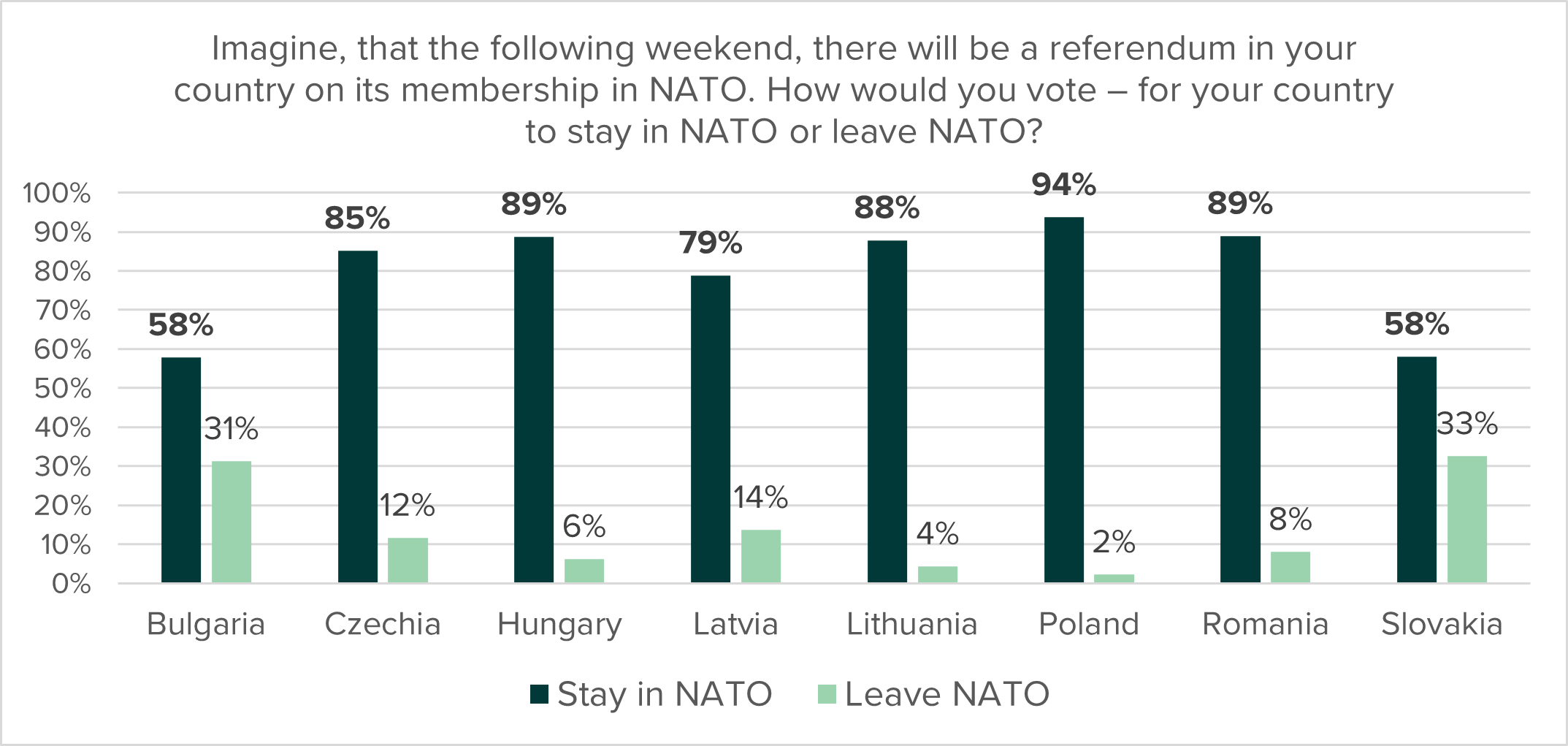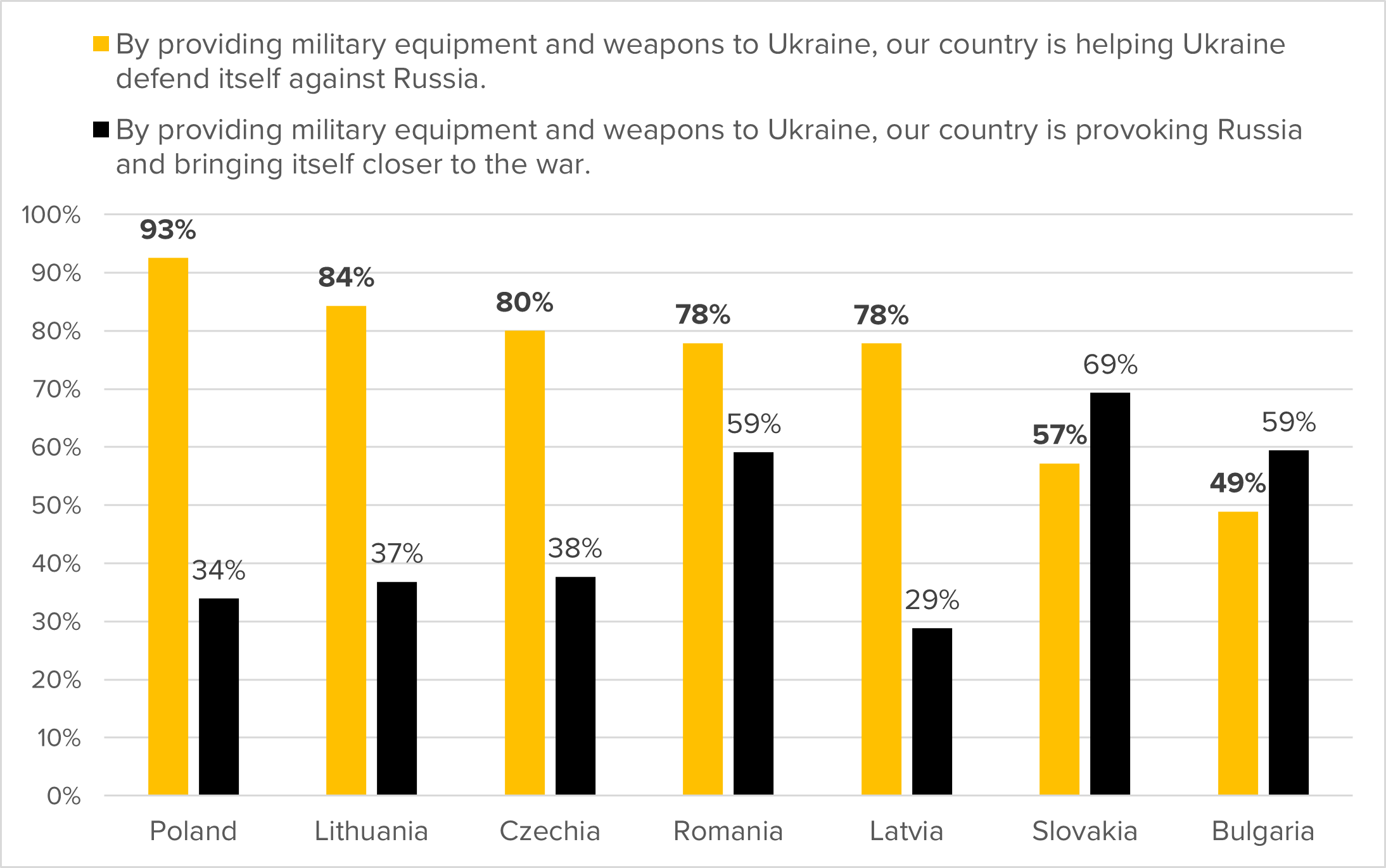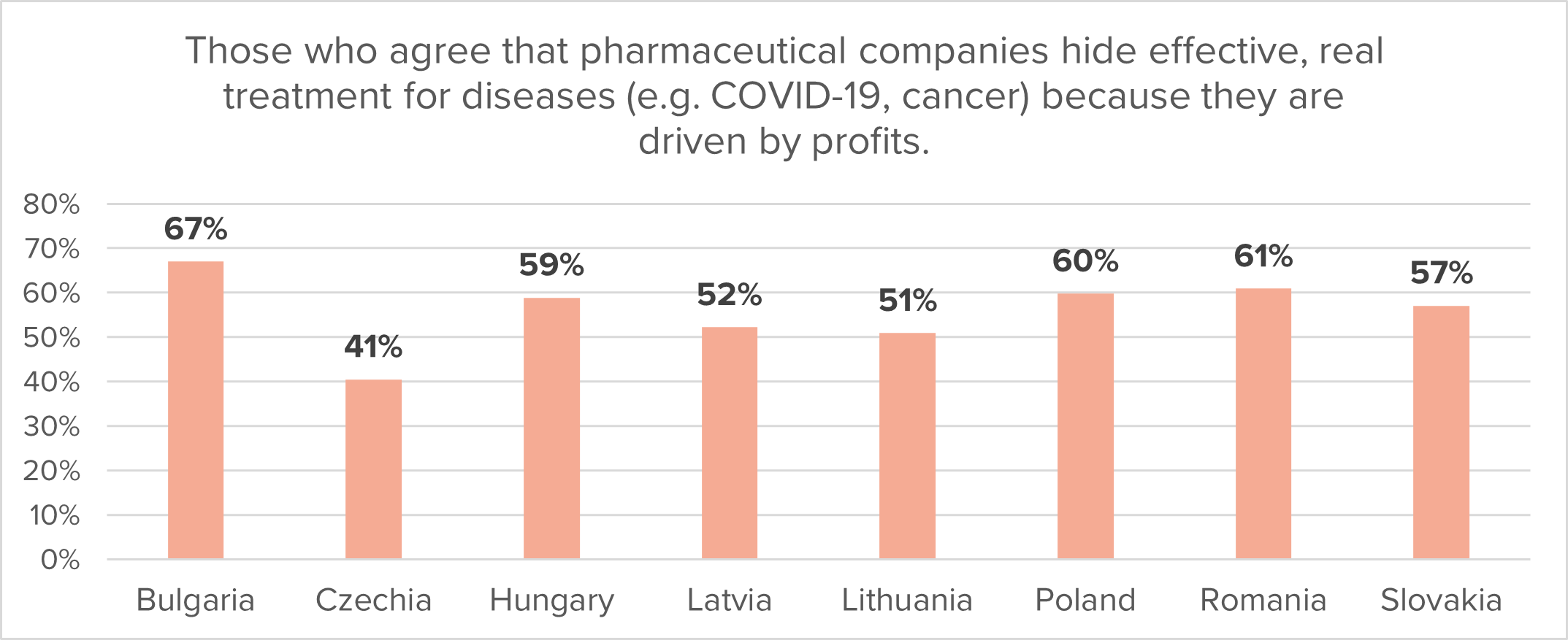Central and Eastern Europe second year into the war: United we stand, with some exceptions

Bratislava, 26 May 2023 – GLOBSEC Trends 2023; the latest opinion poll conducted by GLOBSEC across eight Central and Eastern European (CEE) countries (Bulgaria, Czechia, Hungary, Latvia, Lithuania, Poland, Romania and Slovakia), examines the susceptibility to key narratives – both true and manipulative – concerning the war in Ukraine, NATO, Western nations, the EU, democracy and public health.
The impact of internal politics, historical context and cultural factors on the populations’ attitudes are evident in cases of countries with the lowest pro-West and pro-Ukraine support – Bulgaria, Hungary and Slovakia. “While the war in Ukraine had a considerable effect on public opinion in most countries (as evidenced in the polling in 2022), this year, the polling results show a deepening of the divisions between more and less resilient countries,” the Director of GLOBSEC’s Centre for Democracy & Resilience, Dominika Hajdu said.
“While Hungarians have been gradually looking more towards the East on some issues due to the government's consistent anti-West rhetoric – but parallelly maintaining a strong belief in the country's EU and NATO membership – and Bulgaria's outlook remains influenced by historical ties to Russia, both economically and culturally, Slovakia’s shift in attitudes between 2022 and 2023 may be rather surprising. Support for NATO membership decreased from 72% to 58%, the majority no longer attributes primary responsibility for the war in Ukraine to Russia, and 50% consider the US to be a security threat,” added Jana Kazaz, a Centre’s Research Fellow.
The average support for NATO membership among the polled countries is 79%, but the figures differ significantly across the countries, with 94% of Poles supporting the membership on one hand, and 58% of Slovaks and Bulgarians on the other. Similarly, an average of 74% acknowledge that military support helps Ukrainians defend itself against Russia, but in Slovakia and Bulgaria, more people believe that arming Ukraine provokes Russia and brings their countries closer to war.


“Slovakia is a clear example of how agenda-setting by certain political representatives influence public opinion, especially in a society with a high susceptibility to believe disinformation. Slovakia, currently facing historically low levels of trust in institutions, with only 18% having confidence in the government and 37% in the president, has been marred by political chaos and turmoil caused by the ruling coalition from 2020 to 2023. This lack of trust has created fertile grounds for opposition parties to exploit the situation. They have undertaken a campaign blaming the West for the war and undermining support for Ukraine, which has resonated with a significant portion of the population. Capitalizing on frustrations and fears, a few representatives have successfully swayed the so-called “grey zone” of public opinion for the moment. As Slovakia anticipates an early parliamentary election in late September, the campaign is expected to intensify, potentially further shaping the country’s political landscape,” explained Katarína Klingová, a GLOBSEC senior research fellow.
The case of Slovakia also highlights the broader challenges faced by Central and Eastern European countries in the midst of Russia's aggression and manipulative narratives. The susceptibility to disinformation and internal politics continue to shape public opinion across the region. It underscores the need for policymakers, civil society, and the media to promote factual information, foster unity and address the underlying factors that contribute to shifting views.
Overall, the report shows that the perception of truth in the CEE region prevails over falsehoods, but not universally. For instance, the impact of the health-related disinformation shared during the COVID-19 pandemic contributed to distrust towards pharmaceutical companies, health organisations and vaccinations. Approximately 37% of the CEE region believe that COVID-19 vaccines increase the risk of premature deaths, and 56% suspect pharmaceutical companies of concealing effective treatments for diseases like COVID-19 and cancer due to profit motives. “These sentiments also resonate in societies that exhibit greater resilience against geopolitical misinformation, such as Czechia and Poland. To ensure preparedness for future health crises, the distrust should be addressed now, when health is not at the top of the political agenda,” commented Patrik Szicherle, a GLOBSEC research fellow.

For more, see GLOBSEC Trends 2023 here.
Contact for the media: Olivia Strapeková; [email protected]